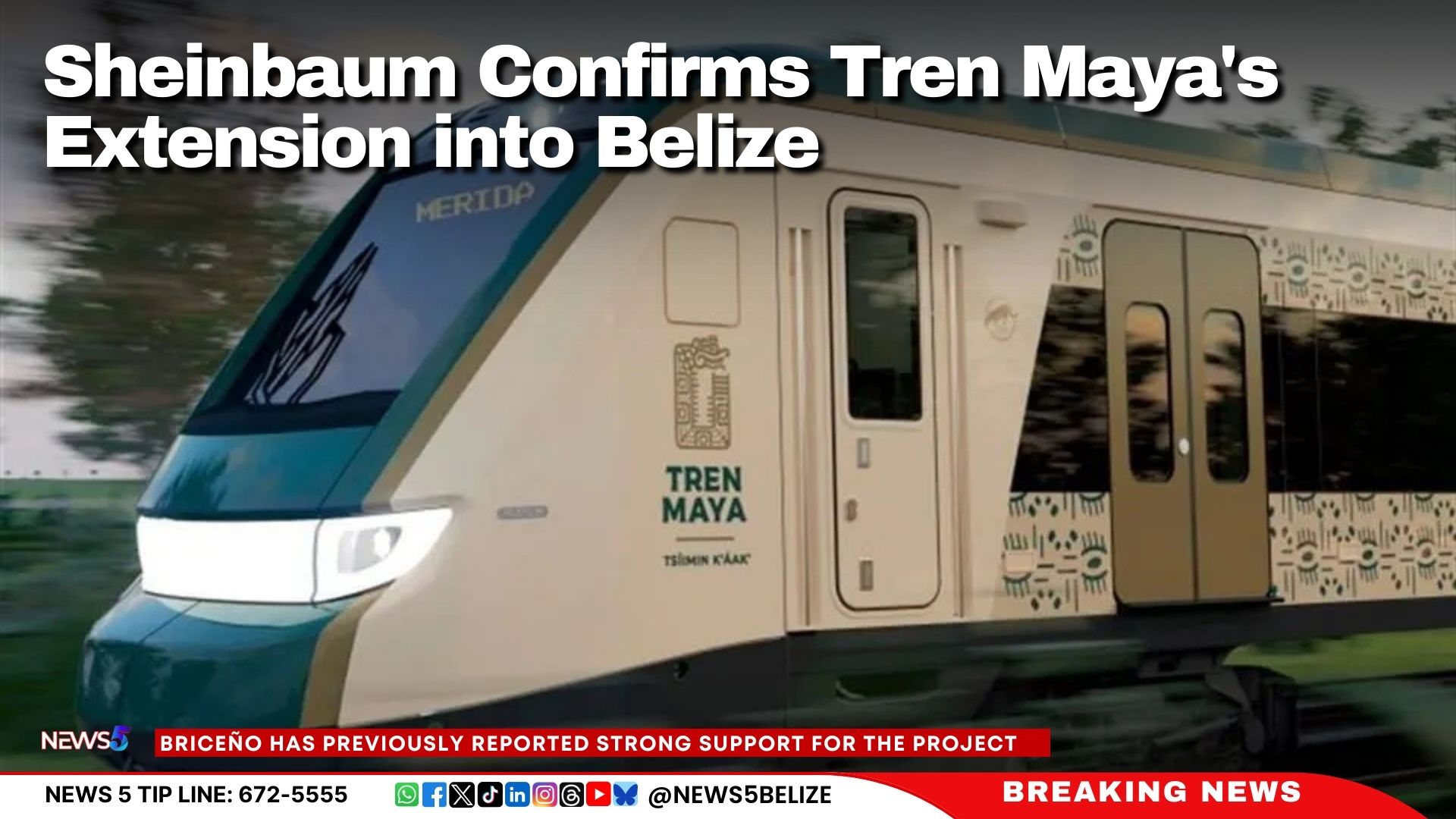Mexican President Claudia Sheinbaum has confirmed that the Tren Maya project will extend its route beyond Mexico, crossing through Belize on its way to Guatemala. This major development follows her discussions with Prime Minister John Briceño and Guatemalan President Bernardo Arévalo.
The extension is part of an effort to make the transnational railway a reality, with both leaders committed to seeing the project through.
The primary aim of the route’s extension through Belize is to protect the environmentally sensitive El Petén jungle, a region rich in biodiversity. The plan to build the train’s railway sections from Chetumal in Mexico to Belize and then onto Flores, Guatemala, was initially proposed by López Obrador in June 2024. This extension is expected to create up to 100,000 direct and indirect jobs.
Briceño has previously reported strong support for the project but has outlined strategic conditions. Among the requests are the construction of a seven-kilometre railway section to cross the Hondo River into Belize and an extension of the route to the Guatemalan border.
In an interview earlier this month, Briceño told the press, “This would bring many benefits to Belize. It could open a new market for tourists since those who come to Cancun are often from Europe… With the Maya Train, it would be much easier for them to travel to Belize.”
Despite the project’s expansion facing significant hurdles, including environmental concerns and cross-border logistics, it also represents a chance to strengthen commercial and cultural ties between Mexico, Belize, and Guatemala.
